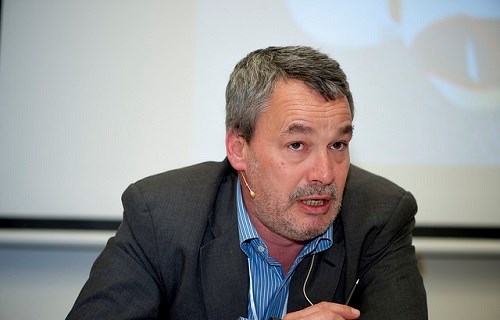UNESCO’s new charter: good intentions in readable language

Philipp Müller-Wirth. Photo: Thomas Søndergaard
29.10.2015
Officially titled “International Charter of Physical Education, Physical Activity and Sport”, the charter introduction concepts such as the benefits of physical activity, gender distinction, participation and the integrity of sport. It also invites media representatives to fulfill their role as critical and independent observers.
“This represents a move away from mere declarations towards actions,” Philipp Müller-Wirth, UNESCO’s Executive Officer for Sport, told Play the Game delegates.
Bob Monroe, former UN official and currently Chairman of Nairobi’s Mathare United football club said that he had attended hundreds of UN meetings, and read numerous declarations, action plans and charters.
“That’s why I left the UN,” he said. “I was surrounded by diplomats trying to solve problems with verbal solutions.”
However, the new charter showed a “clear understanding and respect for the use of language”, Monroe said. “It’s readable. And there are a lot that aren’t.”
He applauded the fact that the word ‘must’ was used in the text instead of the UN’s generally-preferred ‘should’. However, he said that more emphasis should be placed on defining primary responsibility. “How do you ensure that the “must” means “must?,” Monroe said.
Hande Öztürk, an attorney specialising in sports law, said that the new charter would strengthen women’s access to sports and sports leadership. She did not believe in gender separation in areas such as women-only sports facilities, she said, as this could perpetuate gender inequality. Children of both sexes should be allowed to play sport together from an early age, she said. This, she said, was a big issue in her home nation of Turkey.
ISCA’s President, Mogens Kirkeby said that charters, conventions, strategies and codes were not directly linked to solving problems or changing the game. The direct link, he said, was “infrastructure for change”. The phrase can mean different things and needs “legs to run”, said Kirkeby.
He cited Monroe’s work in Nairobi youth football as an example of this “infrastructure for change”. He also warned that if activity levels are not raised, lack of exercise could soon cause more deaths than smoking in the EU.
Richard Bailey, researcher and author, spoke of the role of research within the policymaking process in relation to the charter. “Researchers and policymakers have a problem,” he said.
“The first step on the road to recovery is admitting you have a problem. Messaging is the gap in our skill set,” he said.





